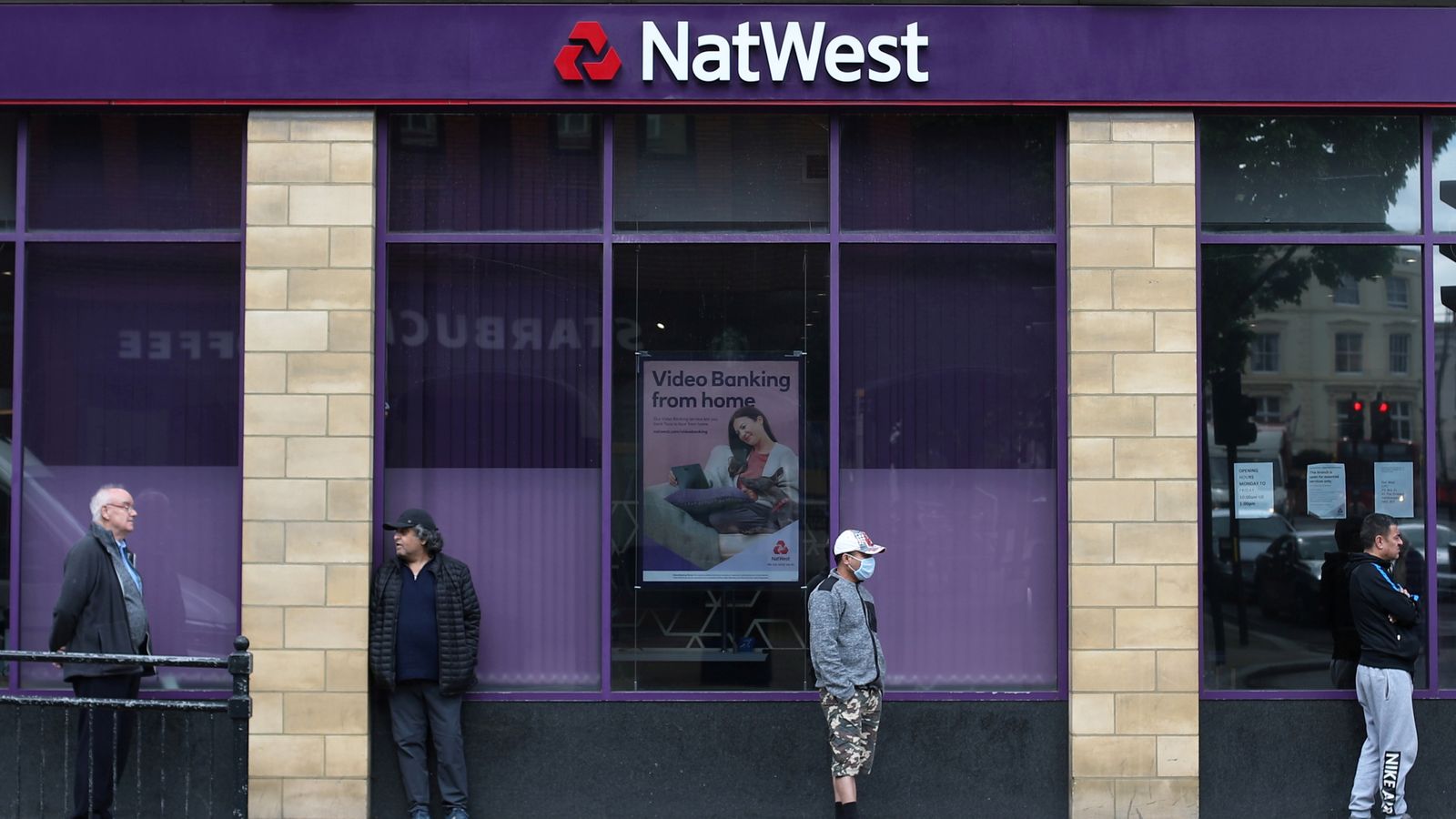NatWest now 38.6% state owned as govt sells £1.2bn of shares

The government has sold £1.2bn of NatWest shares, reducing its ownership of the bailed out bank by nearly 3%.
The state now holds a 38.6% stake in the lender, which was at its peak 84% owned by taxpayers following the global financial crisis of 2008.
It has sold more than half its shareholding and completed its sixth share sale which brought its ownership down from 41.4%.
The government said in the budget it aimed to sell all its interest in the bank by 2025 or 2026 but will only sell its remaining shares when it represents value for money to do so.
In March of last year the government ended its majority ownership by reducing its holding below 50%.
Profits were at the highest since before the 2008 crash, NatWest’s latest full year results for 2022 showed and in the first three months of 2023 were £1.8bn.
Please use Chrome browser for a more accessible video player
7:03
The NatWest chief executive spoke to Sky’s Ian King in February about why higher interest rates aren’t passed on to savers
The 2008 state bailout was done in an effort to protect financial and economic stability during the crisis.
At the time, NatWest was known as the Royal Bank of Scotland group.
Commenting on the share transaction, NatWest’s chief executive said: “This transaction reduces government ownership below 40% and demonstrates positive progress on the bank’s strategic priorities and the path to privatisation.”
Advertisement
“NatWest Group’s robust balance sheet and capital generation allow us to continue lending responsibly and supporting the customers and communities we serve whilst delivering sustainable returns to our shareholders, including the government,” Dame Alison Rose said.